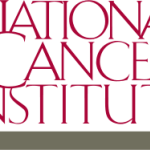- المجال: Government; Health care
- Number of terms: 6957
- Number of blossaries: 0
- Company Profile:
The National Cancer Institute (NCI) is part of the National Institutes of Health (NIH), which is one of 11 agencies that compose the Department of Health and Human Services (HHS). The NCI, established under the National Cancer Institute Act of 1937, is the Federal Government's principal agency for ...
A humanized monoclonal antibody directed against alpha fetoprotein with potential antineoplastic activity. Upon administration, monoclonal antibody HuAFP31 (mAb HuAFP31) binds to and stimulates a cytotoxic T lymphocyte (CTL) response against tumor cells that express alpha fetoprotein.
Industry:Pharmaceutical
A humanized monoclonal antibody conjugated to the imaging radioisotope (indium-111). This radioimmunoconjugate binds to the breast epithelial mucin antigen, which is found primarily on breast cancer cells, permitting radioimmmuno-localization of mucin-positive tumor cells and an estimate of radiation dosimetry prior to administration of cytotoxic radiotherapy.
Industry:Pharmaceutical
A humanized monoclonal antibody against lysyl oxidase-like 2 (LOXL2), with potential antineoplastic activity. Anti-LOXL2 monoclonal antibody AB0024 targets and specifically binds to the scavenger receptor cysteine rich domain 4 (SRCR-4) on LOXL2, thereby preventing the crosslinking of collagen and inhibiting the recruitment and activation of fibroblasts. Inhibiting fibroblast activation and the subsequent production of growth factors and chemokines may lead to an inhibition of tumor cell proliferation. LOXL2, a member of the lysyl oxidase (LO) gene family, is an extracellular, copper-dependent enzyme overexpressed in a variety of tumor cell types, and contributes to tumor cell invasion and metastasis.
Industry:Pharmaceutical
A humanized monoclonal antibody (MoAb) against human epidermal growth factor receptor (EGFR) with antineoplastic activity. MoAb ABT-806 targets the EGFR deletion variant, de2-7 EGFR as well as wild-type EGFR expressed in cells overexpressing the receptor, thereby preventing the activation and subsequent dimerization of the receptor; the decrease in receptor activation and dimerization result in an inhibition in signal transduction and anti-proliferative effects. This MoAb targets cells expressing aberrant EGFR, hence making it an ideal candidate for generation of radioisotope or toxin conjugates.
Industry:Pharmaceutical
A humanized immunotoxin directed against the Lewis Y antigen conjugated with calicheamicin, a hydrophobic enediyne antibiotic, with potential antineoplastic activity. CMD193 binds to the Lewis Y antigen, a tetrasaccharide expressed on the cell surfaces of many tumor cell types. Upon binding, CMD-193 is internalized, thereby delivering the attached calicheamicin to Lewis Y antigen-expressing tumor cells. Calicheamicin binds non-covalently to the minor groove of DNA and prompts conformational changes and DNA oxidation, thereby inhibiting DNA synthesis and inducing apoptosis.
Industry:Pharmaceutical
A humanized immunoglobulin IgG1 kappa monoclonal antibody directed against the B-cell-specific membrane protein CD-19 with potential immunostimulating and antineoplastic activities. Anti-CD19 monoclonal antibody MEDI-551 binds to CD19, which may result in a cytotoxic T-lymphocyte (CTL) response and antibody-dependent cellular cytotoxicity (ADCC) to CD19-expressing B-cells. The Fc portion of MEDI-551 does not contain a fucose sugar moiety, which may contribute to its enhanced ADCC activity. CD19 is a membrane antigen that is widely expressed during B-cell development, from pro-B-cell to early plasma cell stages.
Industry:Pharmaceutical
A humanized IgG4 monoclonal antibody directed against human hepatocyte growth factor receptor (HGFR or c-MET) with potential antineoplastic activity. Anti-c-MET monoclonal antibody LY2875358 binds to c-MET, thereby preventing the binding of HGF to its receptor c-Met and subsequent activation of the HGF/c-Met signaling pathway. This may result in cell death in c-Met-expressing tumor cells. C-Met, a receptor tyrosine kinase overexpressed or mutated in many tumor cell types, plays a key role in cancer cell growth, survival, angiogenesis, invasion, and metastasis.
Industry:Pharmaceutical
A humanized IgG1 monoclonal antibody directed against the placenta growth factor (PGF), with potential anti-angiogenic and antineoplastic activities. Anti-PGF monoclonal antibody RO5323441 binds to both PGF-1 and -2, thereby inhibiting the binding of PGF-1 and -2 to the vascular endothelial growth factor receptor-1 (VEGFR-1) and subsequent VEGFR-1 phosphorylation. This may result in the inhibition of tumor angiogenesis and tumor cell proliferation. PGF, a member of the VEGF sub-family and a key molecule in angiogenesis and vasculogenesis, is upregulated in many cancers.
Industry:Pharmaceutical
A humanized IgG1 monoclonal antibody directed against the epidermal growth factor-like domain multiple 7 (EGFL7) with potential antineoplastic activity. Anti-EGFL7 monoclonal antibody MEGF0444A binds to EGFL7, thereby preventing the activities of EGFL7 on endothelial cells and inhibiting the survival and migration of endothelial cells during angiogenesis. EGFL7, a vascular-restricted extracellular matrix protein that is upregulated during angiogenesis and that regulates vascular development, may be overexpressed on the cell surfaces of various solid tumor cell types.
Industry:Pharmaceutical
A humanized IgG1 monoclonal antibody directed against the cell surface-associated protein Cripto and conjugated to the maytansinoid DM4 with potential antineoplastic activity. The monoclonal antibody moiety of DM4-conjugated anti-Cripto monoclonal antibody BIIB015 binds to the tumor associated antigen (TAA) Cripto; upon internalization, the DM4 moiety binds to tubulin and disrupts microtubule assembly/disassembly dynamics, resulting in inhibition of cell division and cell growth of Cripto-expressing tumor cells. Constitutively expressed during embryogenesis, Cripto belongs to the EGF-CFC family of growth factor-like molecules and plays a key role in signaling pathways of certain transforming growth factor-beta superfamily members; as a TAA, Cripto is overexpressed in carcinomas such as those of the breast, ovary, stomach, lung, and pancreas while its expression is absent in normal tissues.
Industry:Pharmaceutical
